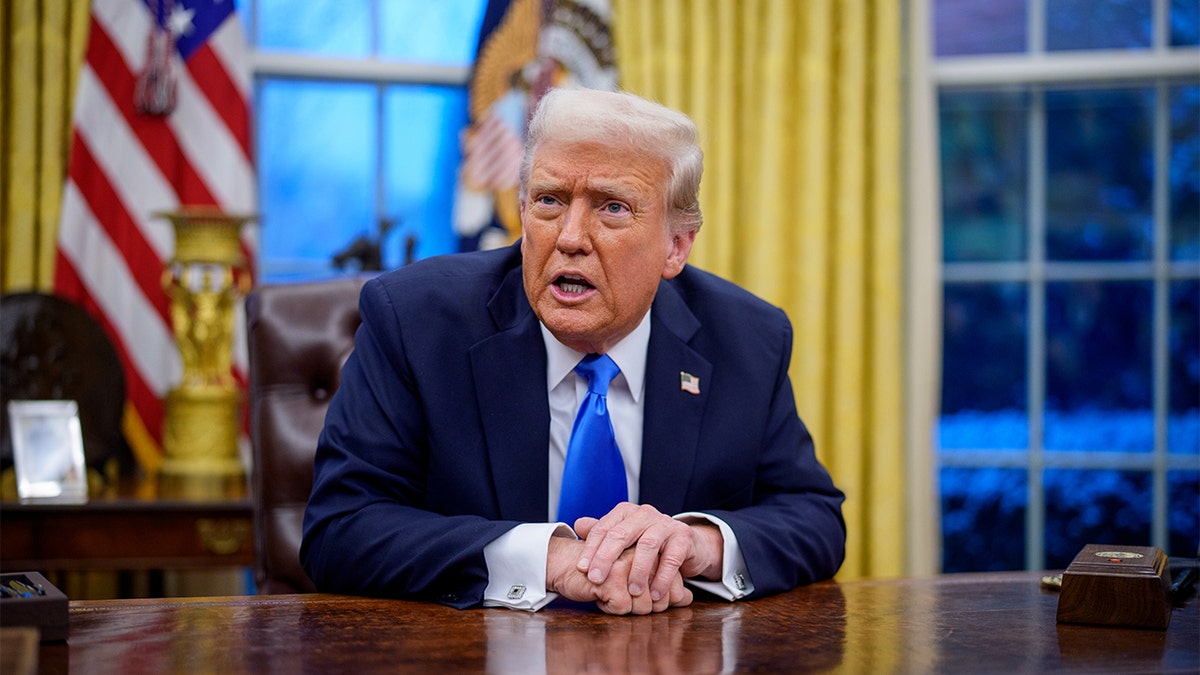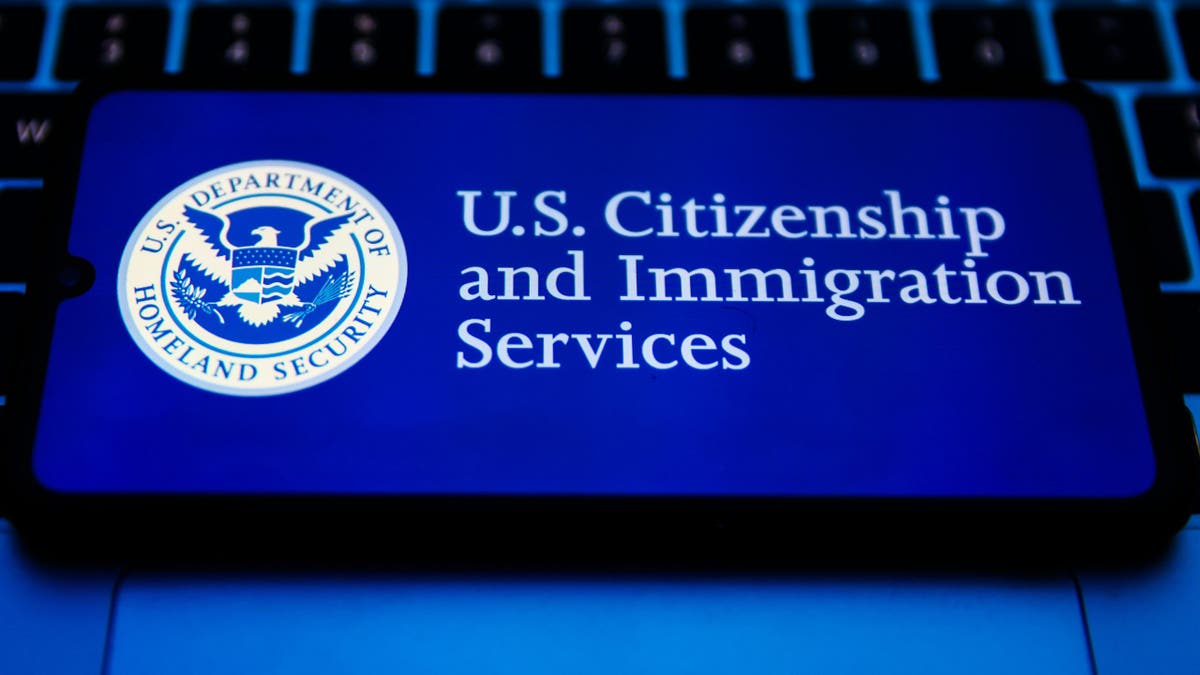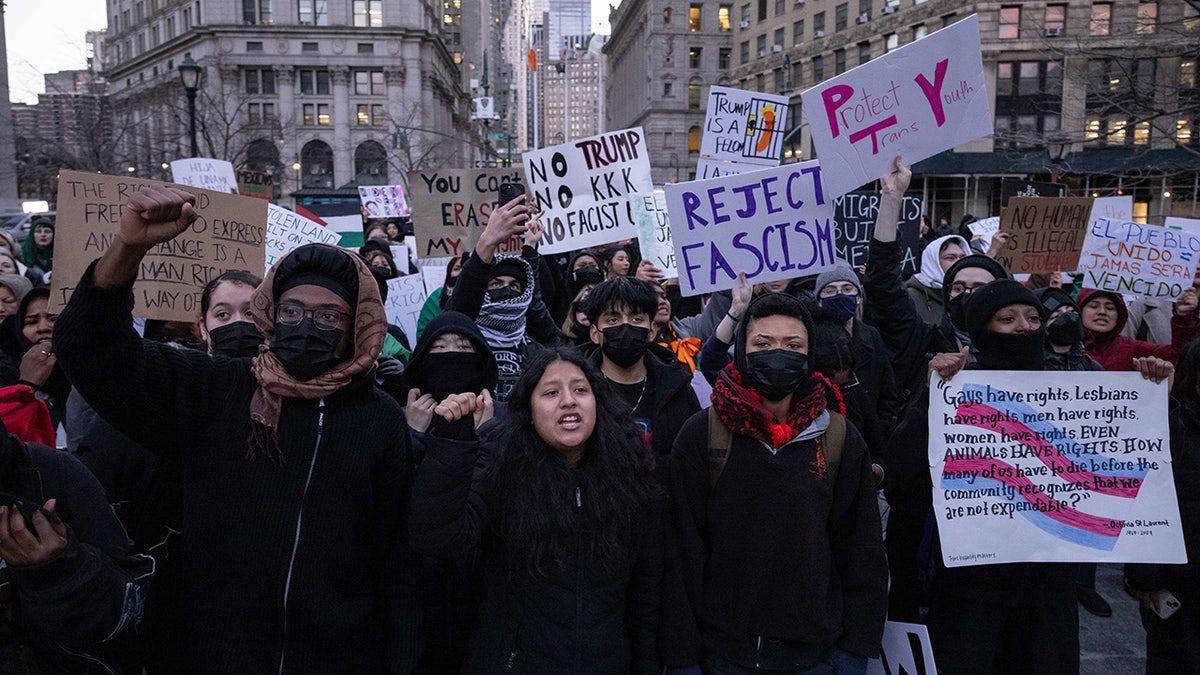The Ninth Circuit Court of Appeals blocked the Trump administration’s ban on birth order immigration from taking force on Wednesday, a legal blow that could kick the issue into the hands of the Supreme Court.
The appellate judges ruled unanimously that the administration failed to show that it was likely to succeed on the merits of its appeal, prompting the panel to rule 3-0 against hearing their emergency request.
“The emergency motion for a partial stay of the district court’s February 6, 2025, preliminary injunction is denied,” the judges wrote.
TRUMP ADMIN APPEALS RULING BLOCKING BIRTHRIGHT CITIZENSHIP

President Donald Trump speaks during an executive order signing in the Oval Office at the White House on February 11, 2025 in Washington, DC. (Andrew Harnik/Getty Images)
The ruling leaves in place a Seattle district court’s decision to temporarily block the executive order from coming into force. The court said Wednesday it will proceed with its June deadline to consider more closely the merits of the case.
To date, no court has sided with the Trump administration’s executive order seeking to ban birthright citizenship, though multiple district courts have blocked it from taking effect.
The Justice Department, for its part, has sought to characterize the order as an “integral part of President Trump’s broader effort to repair the United States’ immigration system, and to address the ongoing crisis at the southern border.”

U.S. Citizenship and Immigration Services seal is displayed on a mobile phone screen. (Beata Zawrzel/NurPhoto via Getty Images)
The executive order banning birthright citizenship was slated to come into force Feb. 19, and would have impacted the hundreds of thousands of children born in the U.S. annually.
To date, at least 22 U.S. states and immigrants’ rights groups have sued the Trump administration over the ban on birthright citizenship, arguing in court filings that the executive order is both unconstitutional and “unprecedented.”
The executive order in question sought to clarify the 14th Amendment, which states: “All persons born or naturalized in the United States, and subject to the jurisdiction thereof, are citizens of the United States and of the State wherein they reside.”
Instead, the language put forth by the Trump administration, and subsequently blocked – would have clarified that individuals born to illegal immigrant parents, or those who were here legally but on temporary non-immigrant visas, are not citizens by birthright.

Protesters chant during a rally against President Donald Trump’s immigration policies in New York City on Jan. 29. (Yuki Iwamura/Bloomberg via Getty Images)
The U.S. is one of roughly 30 countries where birthright citizenship is applied.
States who have challenged the law have argued that the 14th Amendment does in fact guarantee citizenship to persons born on U.S. soil and naturalized in the U.S.
Several district courts across the country previously have blocked the order, prompting the Trump administration to file for emergency relief earlier this month.
Should the Trump administration appeal the Ninth Circuit Court decision to the Supreme Court, it would go to Justice Elena Kagan, who is the Justice overseeing the 9th Circuit.